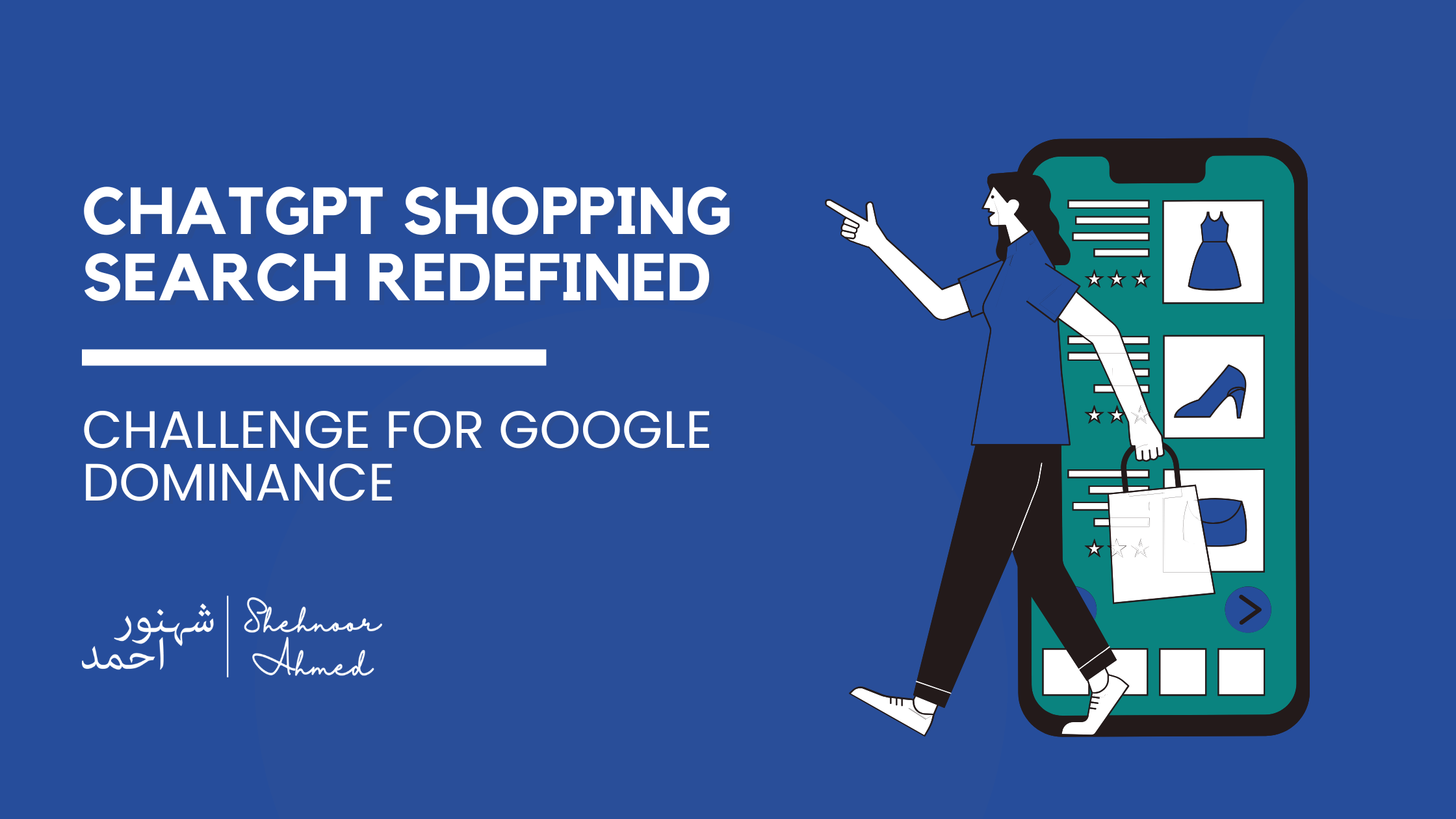
How ChatGPT Shopping Search Redefined E-Commerce and Challenged Google’s Dominance
Introduction: The Day E-Commerce Changed Forever On April 29, 2025, the digital landscape witnessed a seismic shift as ChatGPT Shopping Search. Now its emerged as a formidable challenger to Google’s decades-long dominance in online search and e-commerce. While Google had long relied on advertising revenue to sustain its search empire, ChatGPT’ s bold move to integrate free, AI-powered product listings into its search results marked a turning point. This innovation not only redefined how consumers discover products but also threatened the traditional ad-driven ecosystem that fueled Google’s profitability. In this article, we explore how ChatGPT Shopping Search transformed online shopping, why its approach posed a direct threat to Google. And what this paradigm shift means for businesses, marketers, and consumers. What Changed on April 29, 2025? The Rise of ChatGPT Shopping Search ChatGPT’s launch of free product listings within its search interface was a strategic masterstroke. Unlike Google’s historical emphasis on paid ads and merchant-centric rankings. ChatGPT Shopping Search prioritized user-centric, ad-free product discovery. Key features included: ChatGPT Shopping Search vs. Google: A Battle of Philosophies While Google’s algorithm ranked web pages based on SEO and ad spend, ChatGPT Shopping Search ranked products as entities, prioritizing relevance, value, and user satisfaction. Here’s how they differed: Feature ChatGPT Shopping Search Google’s Product Search Interface Clean, ad-free, comparison-focused Ad-heavy, retailer-centric listings Pricing Transparency Real-time price tracking across sellers Often skewed by sponsored placements AI Integration Conversational explanations for rankings Basic keyword-matching algorithms The Quality Conundrum Despite its advantages, ChatGPT faced early criticism: However, iterative updates and user feedback loops helped ChatGPT refine its algorithms rapidly, showcasing its agility compared to Google’s slower, ad-reliant model. Read more: Ad Agencies Targeting Chatgpt Users to See Ads in Chatgpt Responses Why ChatGPT Shopping Search Matters: A Paradigm Shift The April 29 update wasn’t just about technology—it signaled a broader transformation in consumer behavior and digital economics. 1. The Decline of Ad-Driven Search Google’s revenue model, which derived 80% of income from ads, faced existential risk. ChatGPT Shopping Search proved users preferred uncluttered, unbiased results over paid placements. Brands now had to compete on product quality and data accuracy rather than ad budgets. 2. The Rise of AI-Powered Decision-Making By explaining recommendations (e.g., “This blender is ideal for smoothie enthusiasts due to its 1200W motor”), ChatGPT educated shoppers, fostering loyalty. This contrasted with Google’s opaque “black box” rankings. 3. New Opportunities for Small Businesses Independent sellers gained visibility without hefty ad spend. A craft soap maker, for instance, could rank alongside corporate giants if their product met ChatGPT’s quality benchmarks. The Future of E-Commerce: Adapting to ChatGPT Shopping Search For businesses and marketers, the rules of engagement have changed. Here’s how to thrive in this new era: 1. ChatGPT-Centric SEO Strategies 2. Rethinking Digital Marketing 3. Ethical Considerations Conclusion: The New Era of AI-Driven Commerce April 29, 2025, will be remembered as the day ChatGPT Shopping Search reimagined online product discovery. By prioritizing user experience over ad revenue, ChatGPT didn’t just challenge Google—it catalyzed a consumer-first revolution. For businesses, adaptation is no longer optional. Those who embrace ChatGPT’s AI-driven ecosystem—optimizing for transparency, quality, and ethical practices—will lead the next wave of e-commerce innovation. As the dust settles, one truth remains clear: the future of search isn’t about finding links; it’s about discovering value.



